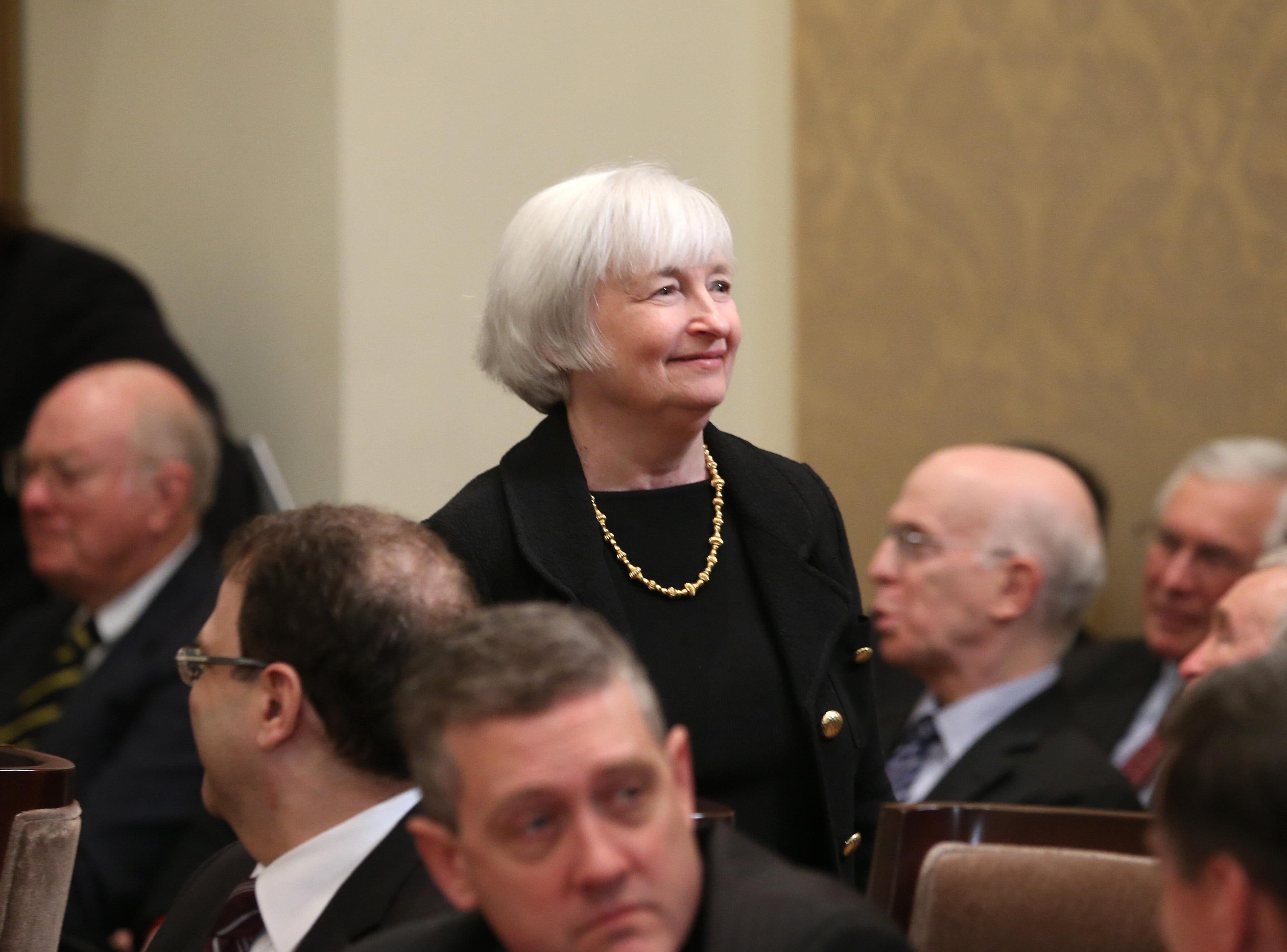Janet Yellen’s appointment to head the Federal Reserve was a fraught process as her opponents stooped to running a grossly sexist whisper campaign against her, hinting that she was only in the running because of some kind of reverse sexism and not because of her extensive qualifications. Yellen managed to overcome the haters to chair the Fed, but the slights keep coming. This week, the Economist published a list of the 25 most influential economists of 2014, and, as many observers have noted, not a single woman was on it. No, not even Yellen, who is arguably the most influential economist in the world, by dint of her job.
To make the situation more complex, as Danny Vinik of the New Republic notes, the magazine’s criteria for making the list excluded Yellen not because she’s a woman, but “by excluding all ‘serving central-bank governors.’ ” However, he adds, that didn’t stop them from including “five key members of the Federal Reserve,” such as the president of the Federal Reserve Bank of New York or the president of the Federal Reserve Bank of Philadelphia. It is odd that the criteria was somehow just broad enough to include these men but just narrow enough to exclude Yellen. As Ben Casselman of FiveThirtyEight writes, “There aren’t many contexts in which Philadelphia Fed President Charles Plosser is more influential than Yellen.”
The list does include health care economist Jonathan Gruber, whose main contribution to 2014 was having his fumbling and failed attempt at explaining the history of the Affordable Care Act’s passage unearthed. Apparently the Economist decided its rankings this year would be based on, in the magazine’s words, “how much attention was paid to their utterances in the mainstream media, the blogosphere and in social media over a 90-day period up to December 11th 2014,” meaning that it wasn’t actually measuring the most influential economists of 2014 so much as the most mentioned economists of the fall. Which is a fine list, if you want to make it, but isn’t what the feature advertises.
The methodology wasn’t just a blunder when it comes to Yellen, either. “Or take No. 25,” Casselman writes, “San Francisco Fed President John Williams, an undeniably important economist but one who apparently scored higher because The Economist’s algorithm mixed him up with a discredited conspiracy theorist who happens to share his name.”
Economics isn’t the sexiest of topics, so I understand the Economist’s urge to mix it up a little by injecting some Twitter trendiness and trafficking in outrage. But this experiment was a failure. Hopefully, next year influence will be measured in terms of actual impact that people have on the world, a measure that would certainly include Janet Yellen.
